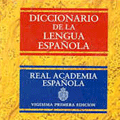054 - Asombrosos matices del idioma español
054 - Erstaunliche Nuancen der spanischen Sprache
054 - Amazing shades of the Spanish language
054 - Le sorprendenti sfumature della lingua spagnola
054 - スペイン語の驚くべきニュアンス
054 - Nuances surpreendentes da língua espanhola
054 - Удивительные нюансы испанского языка
054 - İspanyolca dilinin şaşırtıcı nüansları
054 - 西班牙语的惊人细微差别
Asombrosos matices del idioma español
Amazing nuances of the Spanish language
Nuances étonnantes de la langue espagnole
Удивительные нюансы испанского языка
REPORTERA
REPORTER
РЕПОРТЕР
¡Última hora!...
Last minute!...
Последняя минута!...
Nuestros corresponsales en Madrid nos acaban de entregar el novísimo reporte lingüístico titulado
Our correspondents in Madrid have just delivered the latest linguistic report entitled
Nos correspondants à Madrid viennent de nous remettre le tout nouveau rapport linguistique intitulé
Наши корреспонденты в Мадриде только что передали нам последний лингвистический отчет, озаглавленный
“Usos y costumbres del Idioma de Cervantes”.
"Uses and customs of the Language of Cervantes".
"Usages et coutumes de la langue de Cervantes".
«Использование и обычаи языка Сервантеса».
Noten ustedes, amigos radioescuchas, los matices semánticos de las palabras según las declinemos en el género masculino o en el femenino.
Notice you, listeners, the semantic nuances of words as we decline them in the masculine or feminine gender.
Remarquez-vous, amis auditeurs, les nuances sémantiques des mots selon que nous les déclinons au masculin ou au féminin.
Обратите внимание, друзья радиослушатели, на семантические оттенки слов в зависимости от того, склоняем ли мы их в мужском или женском роде.
LOCUTOR
ANNOUNCER
ДИКТОР
Dios: principio masculino creador del universo y cuya divinidad se transmitió a su hijo varón por línea paterna.
Gott: das männliche Prinzip, das das Universum erschuf und dessen Göttlichkeit durch väterliche Linie auf seinen Sohn übertragen wurde.
God: the masculine principle that created the universe and whose divinity was transmitted to his son by paternal line.
Dieu: principal créateur masculin de l'univers et dont la divinité a été transmise à son enfant mâle à travers sa lignée paternelle.
Бог: мужское начало, создатель вселенной, божественность которого была передана его ребенку мужского пола по отцовской линии.
LOCUTORA
Diosa: ser mitológico de culturas atrasadas y entregadas al paganismo.
Goddess: be mythological of backward cultures and delivered to paganism.
Déesse: être mythologique des cultures arriérées et livré au paganisme.
Богиня: мифологическое существо отсталых культур, поддавшееся язычеству.
LOCUTOR
Patrimonio: conjunto de bienes.
Heritage: set of assets.
Patrimoine: ensemble d'actifs.
Наследие: набор активов.
LOCUTORA
ANNOUNCER
ДИКТОР
Matrimonio: conjunto de males.
Marriage: set of evils.
Брак: множество зол.
LOCUTOR
Prójimo: lo que debemos amar como a nosotros mismos.
Neighbor: what we should love as ourselves.
Voisin: ce que nous devrions aimer comme nous-mêmes.
Ближний: что мы должны любить как самих себя.
LOCUTORA
Prójima: la fulana de la esquina.
Neighbor: the corner girl.
Voisin: la pute du coin.
Сосед: шлюха на углу.
LOCUTOR
Héroe: ídolo.
Hero: idol.
Héros: idole.
герой: идол
LOCUTORA
ДИКТОР
Heroína: droga.
Heroin: drug.
Героин: наркотик.
LOCUTOR
ANNOUNCER
Hombre fácil: indica buen carácter y simpatía.
Easy man: indicates good character and sympathy.
Homme facile: indique un bon caractère et de la sympathie.
Покладистый мужчина: указывает на хороший характер и дружелюбие.
LOCUTORA
Mujer fácil: indica libertinaje.
Easy woman: indicates debauchery.
Femme facile: indique la débauche.
Легкая женщина: указывает на разврат.
LOCUTOR
Suegro: padre político.
Father-in-law: political father.
Beau-père: beau-père.
Свекор: тесть.
LOCUTORA
Suegra: feliz Adán que no la tuvo.
Mother-in-law: Happy Adam who did not have it.
Belle-mère: heureux Adam qui ne l'avait pas.
Свекровь: Счастливый Адам, у которого ее не было.
LOCUTOR
Solterón: deseado de todas.
Solterón: desired of all.
Bachelor: souhaité de tous.
LOCUTORA
Solterona: hazmerreír de todos.
Solterona: laugh at everyone.
Old Maid: une risée de tous.
Solteirona: motivo de chacota.
LOCUTOR
Don Juan: el hombre más exitoso.
Don Juan: the most successful man.
Don Juan: l'homme le plus réussi.
LOCUTORA
Doña Juana: la mujer de la limpieza.
Doña Juana: the cleaning woman.
Doña Juana: la femme de ménage.
LOCUTOR
Perro: el amigo más fiel del hombre.
Dog: man's most faithful friend.
Chien: l'ami le plus fidèle de l'homme.
LOCUTORA
Perra: la que te traicionó con tu mejor amigo.
Bitch: the one who betrayed you with your best friend.
Salope: celle qui t'a trahi avec ta meilleure amie.
LOCUTOR
Zorro: espadachín justiciero.
Fox: righteous swordsman.
Zorro: épéiste juste.
LOCUTORA
Zorra: puta.
Slut: whore.
Salope: putain.
LOCUTOR
Hombre público: personaje prominente.
Public man: prominent personage.
LOCUTORA
Mujer pública: ya se sabe.
Public woman: you know.
Femme publique: vous savez.
REPORTERA
REPORTER
¿Captan, estimados amigos y amigas, alguna sutil diferencia en el tratamiento que brinda la ilustre lengua de Cervantes a los hombres y a las mujeres?...
Do you capture, dear friends, any subtle difference in the treatment offered by the illustrious Cervantes language to men and women? ...
Comprenez-vous, chers amis, une différence subtile dans le traitement que l'illustre langue de Cervantès offre aux hommes et aux femmes? ...
Улавливаете ли вы, дорогие друзья, какую-нибудь тонкую разницу в обращении, которое прославленный язык Сервантеса предлагает мужчинам и женщинам? ...
¡Más claro no canta un gallo!...
Clearer does not sing a rooster! ...
Bien sûr, un coq ne chante pas! ...
Более того, петух не кукарекает! ...
Mejor dicho, una gallina.
Or rather, a chicken.
Plutôt, un poulet.
Скорее курица.
¡Adelante, estudios!
Go ahead, studies!
Allez-y, études!
Давай, учись!

